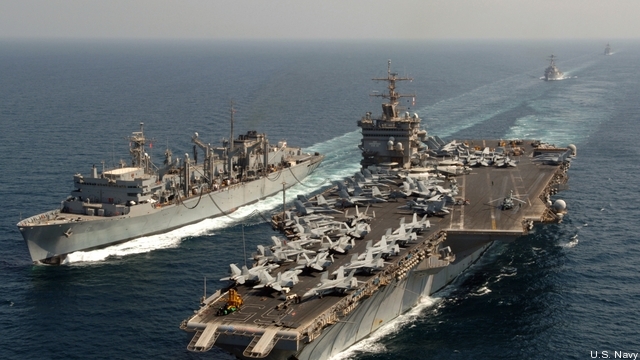Hill Turns Up Heat On White House Over ‘Law Of The Sea’
Posted on
 CORRECTED CAPITOL HILL: Debate over a little-known international maritime treaty is heating up on Capitol Hill in light of the Pentagon’s military buildup in the Western Pacific.
CORRECTED CAPITOL HILL: Debate over a little-known international maritime treaty is heating up on Capitol Hill in light of the Pentagon’s military buildup in the Western Pacific.
Senate Armed Services Committee member Jim Inhofe said yesterday he plans to call formal hearings on the Senate’s decision not to ratify the so-called “Law of the Sea.” treaty. “I’m probably not the only one . . . at the table here who disagrees with the administration’s position on the Law of the Sea,” he said during yesterday’s committee hearing.
To that end, non-ratification of the pact could hinder current and future U.S. operations in the region, Pacific Command chief Adm. Robert Willard said during the same hearing. Shifting the strategic and operational focus of America’s armed forces from Southwest Asia to the Pacific is the cornerstone of the White House’s new national security strategy unveiled late last year.
“I do think that not being a signator disadvantages the United States in a particular way,” Willard told members of the committee. “What the United States doesn’t have as a non-signator is a seat at the table when the convention is debated or as the convention evolves by the various countries that have ratified it . . . I think it’s important that the United States have a seat at that table.”
Set up through the United Nations, the treaty establishes a common framework to delineate maritime territorial claims and international forum to resolve any disputes over those claims. Opponents of the pact argue the terms of the deal would impede the Navy’s freedom of movement across the world’s oceans. U.S. commanders have acknowledged the treaty as the “legal framework” for all naval operations and “continue to share [Law of the Sea] issues and debate . . . legal definitions with our counterparts throughout the Asia Pacific,” Willard said.
However, America’s refusal to officially ratify the pact denies U.S. representatives the ability to hash out any territorial disputes via the treaty’s forum.
Losing access to that forum takes away a key negotiating tool from American diplomats, should things come to a head with China and other regional powers in the Pacific. Beijing has been increasingly imposing its military muscle against a number of nations in the region. Disputes between China and others over who controls the waterways in the South China Sea have raised tensions in the region significantly. Beijing’s continued investment in advanced military hardware, from fifth-generation fighters to aircraft carriers, has only added fuel to those tensions. An international body, like the one defined in the Law of the Sea treaty, where the U.S., China and others could go to hammer out misunderstandings on maritime sovereignty could be critical to keeping things in the Pacific from boiling over.
Subscribe to our newsletter
Promotions, new products and sales. Directly to your inbox.
